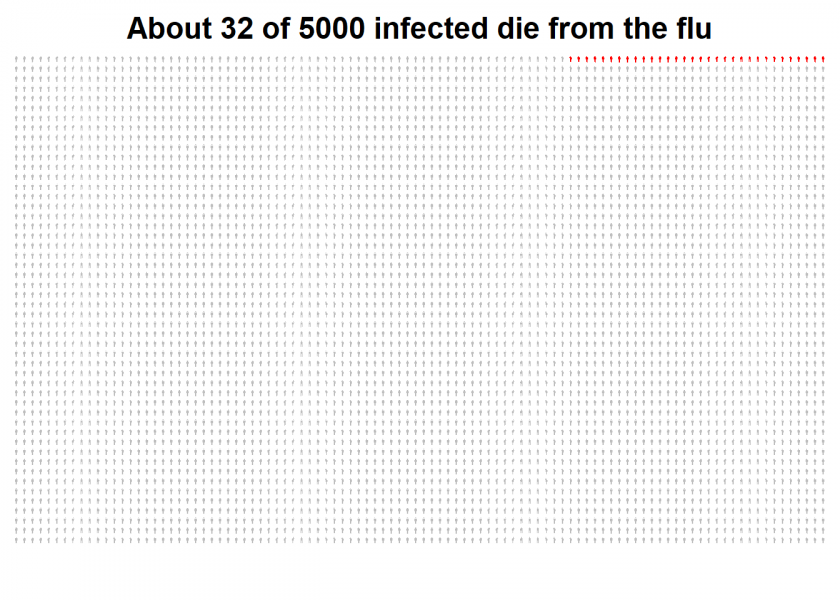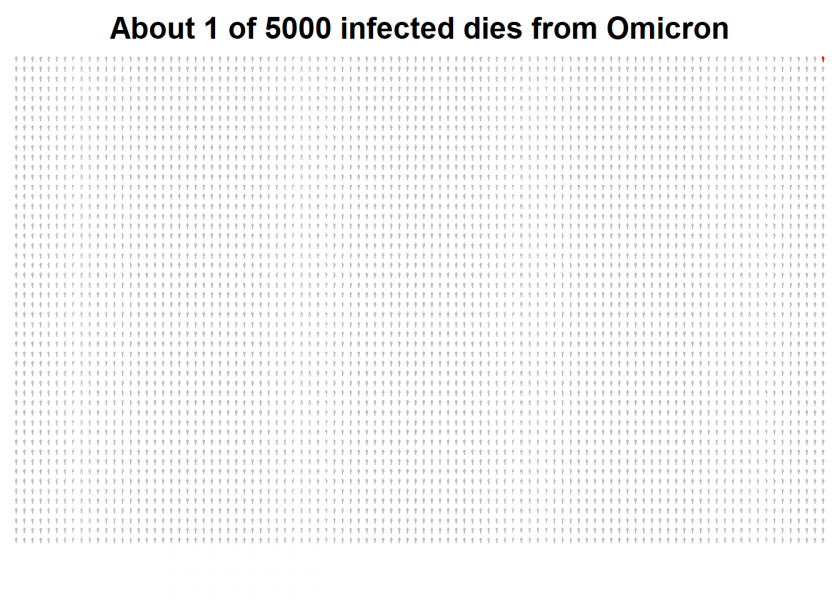
The Oktoberfest in Munich, also called “Wiesn” in the local Bavarian dialect, is the world’s largest Volksfest. It had been cancelled for the last two years due to COVID-19. Stakes are running high whether it should be cancelled again this year. To get some perspective, read on!
It is obvious that large gatherings of people are spreading infectious diseases. Yet the question, in my opinion, is not an absolute one but one that must be seen in context: how dangerous is the new prevailing Omicron variant really compared to seasonal influenza?
Earlier SARS-CoV-2 variants were often falsely compared to the flu but how about Omicron?
To answer that question, I found a recent paper in the prestigious “International Journal of Infectious Diseases”: Infectivity versus fatality of SARS-CoV-2 mutations and influenza (Xue et al., August 2022), which is the result of an international research project conducted by three universities in China and Canada. It investigates data from South Africa, Canada, and the United States.
To model the pandemic, it uses refined methods comparable to those I used and explained in my earlier blog posts:
There are two parameters that are especially interesting to gain some perspective: infectivity (transmissibility) and fatality (mortality).
Based on the numbers from the US and Canada transmission rates of Omicron are about three times higher than those of seasonal flu (0.407 to 0.120 and 0.360 to 0.158).
But the average death rates of seasonal influenza are at least ten times (up to more than 30 times) higher than that of Omicron!
Let us visualize the numbers from the US (own plots based on the paper):
library(personograph) n <- 5000 flu <- 32 / n data <- list(first = flu, second = 1-flu) personograph(data, colors = list(first = "red", second = "grey"), fig.title = "About 32 of 5000 infected die from the flu", draw.legend = FALSE, n.icons = n, dimensions = c(50, 100), plot.width = 0.97)

omicron <- 1 / n data <- list(first = omicron, second = 1-omicron) personograph(data, colors = list(first = "red", second = "grey"), fig.title = "About 1 of 5000 infected dies from Omicron", draw.legend = FALSE, n.icons = n, dimensions = c(50, 100), plot.width = 0.97)

The exact numbers given in the paper are 0.0064 for seasonal influenza and 1.758 * 10^-4 for Omicron, so even a little bit lower for the latter.
The authors summarize:
These results indicate that Omicron’s profile (high transmissibility, low mortality) is a more exaggerated version of seasonal influenza, suggesting that Omicron outbreaks may be more like those of seasonal influenza than those of Delta.
The authors conclude:
Hence, we predict that methods for combating Omicron based on previous public health responses to seasonal influenza will be effective.
Based on this analysis, I personally see no reason to cancel the Oktoberfest.
Don’t get me wrong: The flu is not to be sneezed at either (no pun intended) but if we haven’t banned gatherings because of it in the past why should we now ban gatherings due to a comparably severe disease? This would boil down to double standards.
Of course, it can be argued that other parameters, like more severe courses, hospitalizations, and long-term effects (long COVID) should be considered too. Unfortunately, those parameters are not available in the paper.
Another point, as always, is about data quality which is far from perfect (as the authors correctly state at the end of the paper). Yet the quality is far better for COVID data than for influenza.
And, finally, the situation must be monitored closely. In case of the appearance of a new, more deadly strain, a new risk assessment would be necessary.
What is your opinion on the results and my conclusion? Please write it in the comments!
UPDATE August 21, 2022
I created a video for this post (in German):
